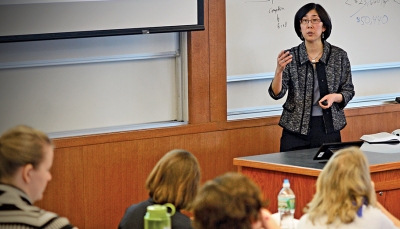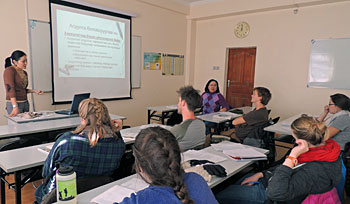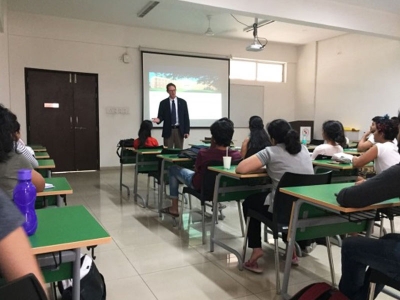
When Anirban announced one fine day that he wanted to go abroad for higher studies, there was furore at the Dasgupta residence. His parents were dismayed and shocked and the immediate response was to disallow him to exercise this option. What followed were many days of coaxing by Anirban and many sleepless nights for his parents. Finally, Anirban flew off from Calcutta International Airport on a sultry August evening last year. His destination? The US of A. He has joined Austin College, Texas, for a bachelor’s degree in business administration.
The Malvais from Gurgaon, on the other hand, found it easier to accept their daughter Rhea’s decision to go to the UK for a bachelor’s degree in fine arts. Although Rhea is still studying in class XI in Sriram School, her parents feel that she is a mature child and should be supported in her initiative to get admission at the Birmingham University. Their only concern is the financial fallout of this decision.
Again, Sushma Goel from New Delhi found it difficult to accept her daughter Pankhuri leaving for Australia to get a bachelor’s degree in jewellery design and manufacture. She worried about her well-being, but was ultimately resigned to accept the inevitable.
Commenting on his daughter Ayesha’s decision, Ajay Gopal says, “It wasn’t her or my decision. It was our joint decision while planning her career. We realised that in Bangalore or in India in general, entry into good colleges is virtually impossible. But once we decided to let her go abroad for further studies, we were in a dilemma. As a parent, my worry was that she would settle down there and get used to that lifestyle. But then, it’s her life. She wants to join a liberal arts college and major in economics, then work for two years after which she would do her MBA. Her admission is to be finalised in May and then she would leave by the end of August.”
Reasons to go
In the present environment of rapid growth of technology and the ever increasing need for specialisation, a degree in higher education abroad has gained considerable significance. Students are finding it very difficult to obtain high quality education in India because of increasing competition and a limited number of good colleges. A stimulating educational environment and endless job opportunities, high standards of living exposure to a new world, a new culture, and the promise of good monetary returns have made higher education abroad an attractive proposition.
But these are not the only reasons that lure a teenager towards the west. Impressionable minds are also influenced by social and peer pressure. Career choices are usually guided by friends’ choices or what is in vogue at that point of time. Very few actually think through the proposition in its totality.
Picture Credit : Google






 Representatives of foreign universities have one lament about Indian students: the moment they get out of the flight they announce, ‘I want a job.’ But the purpose of your going abroad is to study, not to earn. Keep it in mind that you cannot cover the cost of your studies by taking up work. That will only partially cover your extra expenses
Representatives of foreign universities have one lament about Indian students: the moment they get out of the flight they announce, ‘I want a job.’ But the purpose of your going abroad is to study, not to earn. Keep it in mind that you cannot cover the cost of your studies by taking up work. That will only partially cover your extra expenses




